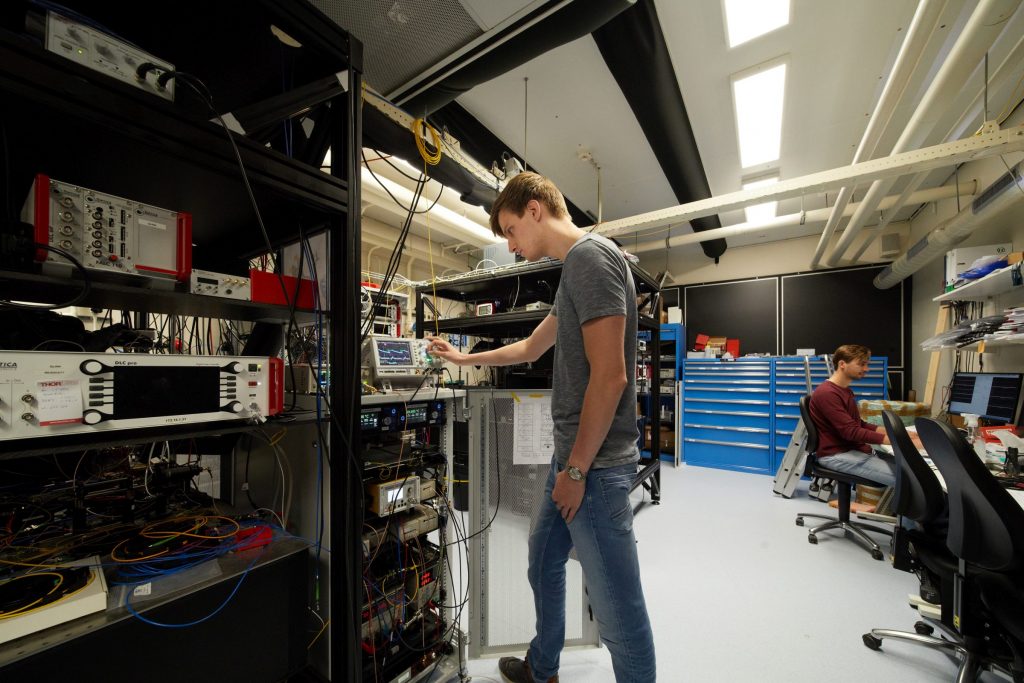Various TU Delft entities are working with Leiden University on an engineering course in quantum technology. “This field of work is going to grow enormously.”
Work in the Ronald Hanson lab. (Photo: Cheeseworks voor QuTech)
Dr Miriam Blaauboer (TNW) is Quartermaster of the new master’s programme, the Quantum Information Science & Technology (QIST). She herself combined mathematics and physics in two master’s programmes at Leiden University, but in the new master’s programme, the curriculum for the QIST engineers will be interdisciplinary and consist of physics, mathematics, electrical engineering and computer science.
Quantum industry
“McKinsey and TNO expect the field of quantum technology to grow, both among start-ups and IT giants Google, Intel and Microsoft, who all want to be at the forefront of the development of the quantum computer and the quantum internet”, says Blaauboer. “This field of work is going to grow enormously.”
As an example of the growth, she mentions the allocation of EUR 615 million by the Ministry of Economic Affairs and Climate earlier this year to the Quantum Delta NL programme to stimulate quantum technology in the Netherlands. According to Blaauboer, the development of quantum devices requires multidisciplinary engineers with a background in electronics, mathematics and computer science on top of expertise in quantum physics.
The form of education will be mixed
The QIST master’s course is a collaboration between the Faculties of Applied Sciences, Electrical Engineering, Mathematics & Computer Science and QuTech at TU Delft, and the Faculty of Mathematics and Natural Sciences at Leiden University. The programme complements a bachelor’s degree in technical physics, electrical engineering, mathematics and computer science.
Programme
“ ‘Homologation’ is done in the first part of the two-year master’s programme”, Blaauboer explains. In other words, the knowledge of the three other disciplines is brushed up so that all the students are on a par. Another important part is a collaborative project whose subject originates from the quantum industry. As a source of inspiration, Blaauboer refers to the Joint Interdisciplinary Projects. The master’s will have three specialisations: quantum hardware, quantum software and quantum electronics. The form of education will be mixed: at a distance when possible and intense cooperation when the project requires it.
If the accreditations for purposes such as job prospects and content coherence are concluded positively and on time, the institutions hope to receive the first students on 1 September 2022. Blaauboer, who will then become the Director of Education, expects to start with a small group of 25 students and to then grow.
Do you have a question or comment about this article?
j.w.wassink@tudelft.nl


Comments are closed.